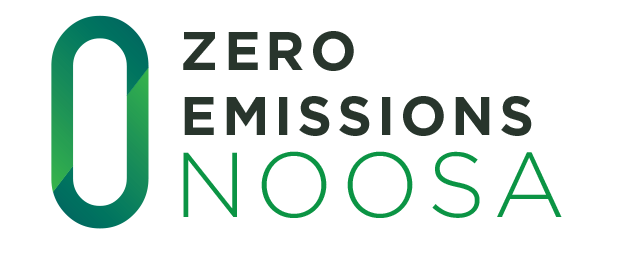What is the Project / proposal about?
An environmental upgrade is an addition, enhancement, or modification to an existing building to improve its energy, water and resource efficiency.
The following upgrades that can benefit from an EUA include:
· improving energy e.g. heat pumps on HWS and water efficiency;
installing renewable energy infrastructure e.g. solar & batteries;
reducing greenhouse gas emissions e.g. improving HVAC efficiency;
preventing or reducing pollution e.g. processing before discharge of harmful substances;
reducing the use of building materials e.g. making buildings more thermally efficient through type of building products uses – windows so no external shading needed;
recovering or recycling materials e.g. diverting fit for purpose products to other uses
monitoring environmental performance e.g. energy management systems to reduce the amount of power needed at peak times
encouraging alternatives to fossil fuel vehicle use e.g. purchase of EV or hydrogen vehicles.
Why are we doing this?
ZEN Inc. is advocating for EUA’s to be introduced in Qld. In Vic., NSW & SA households and businesses are enjoying the cost saving and emissions reduction benefits of the addition, enhancement, or modification to an existing building to improve its energy, water and resource efficiency at no up-front cost. An EUA:
Is a tool to help implement behaviour change towards net-zero emissions by 2050
Helps to deliver Queensland’s renewable energy future
Helps to protect our natural environment
It is smart, innovative and equitable.
It’s a no brainer with no downsides.
EUA’s: will benefit:
Households and business affected by extreme weather events – bushfires, floods
Households and business needing to move away from gas
Households and business who want to reduce their emissions and their power bills
Households and business improving design features to take advantage of natural heating & cooling, reducing emissions & power costs
New buildings using the 7-star energy rating in the new National Building Code
Commercial Building owners upgrading their properties to be more energy & water efficient
·Home owners, especially older vulnerable people, who cannot afford to pay to install e.g. solar PV or heat pumps on hot water services. Using an EUA, they can install these devices at no upfront cost and benefit from reduced power and water bills
Tenants can benefit as landlords now have an incentive to install these devices and pass on the savings to their tenants who save on their utility bills. This usually does not happen if the landlord has to pay up front to install e.g. a solar system
Social housing complexes can be built or retrofitted with energy and water saving devices to reduce the water & power bills of their tenants.
·Jobs creation in construction and retrofitting in product and service supply chains industries that make energy, water and other building upgrades possible e.g. electricians and solar installers.
The regional economy by stopping money previously leaking to pay energy bills e.g. by having solar, the $ stay in the regional economy and help to grow that regional economy e.g. in Noosa LGA it is $77m + annually.
Key industry sectors to benefit include:
Tourism
Agriculture
Commercial Office Building and
Commercial and Industrial properties
some of those which have been hardest hit by COVID 19.
Where will the project be located?
Households and business across Queensland.
How will the project be operated?
An EUA facilitates a loan for an environmental upgrade to business (and in Vic. for households also), from an external source, with the loan attached to the property. It is repaid through council rates over periods of up to 20 years. Businesses (and in Vic. households) don’t have to pay upfront costs for building upgrades.
As the loan stays with the property, owners are more inclined to upgrade buildings as they aren’t out of pocket. In most arrangements they share these costs with their tenants, who benefit most from reduced operating costs. This is particularly important to assist with the COVID 19 recovery. Low interest rates apply due to the security of the loan.
There is no financial contribution needed from either the State Government or Councils. The loan is facilitated by a third party, for example the Sustainable Australia Fund through Bank Australia, or ANZ or NAB. Individual councils then decide whether or not to participate and to facilitate loan repayments through council rates.
The Council can decide to administer repayments itself or it can have Better Building Finance administer it at a cost of about $20 per quarter on a $50,000 loan that is paid by the person who takes out the loan.
The Qld. Ministerial Construction Council (The Department of Energy and Public Works) has agreed on a framework for having EUA’s in Qld.
No investment is needed by state or local governments.
Who are the key stakeholders in the project?
Business, households, Councils (to facilitate the repayments through rates), State Government to change legislation in Queensland.
When will the project materialise?
In Qld. two pieces of legislation need to be changed:
A. Local Government Act 2009 to enable the equivalent of the interstate schemes to operate in Queensland &
B. the City of Brisbane Act.
This is because, while Queensland Councils may provide finance to a business or community organisation, or provide a guarantee to a private sector lender on behalf of a business or community organisation, such arrangements require the Treasurer’s approval under the Statutory Bodies Financial Arrangements Act 1982 (SBFA Act). However, the Local Government Act 2009 (LG Act) specifically prohibits providing a loan to, or a guarantee on behalf of, individuals.
When the proposed amendments are made in Queensland, Councils need to agree to participate in the EUA initiative.
For further information, contact:
Anne Kennedy, Project Leader, chair@zeroemissionsnoosa.com

